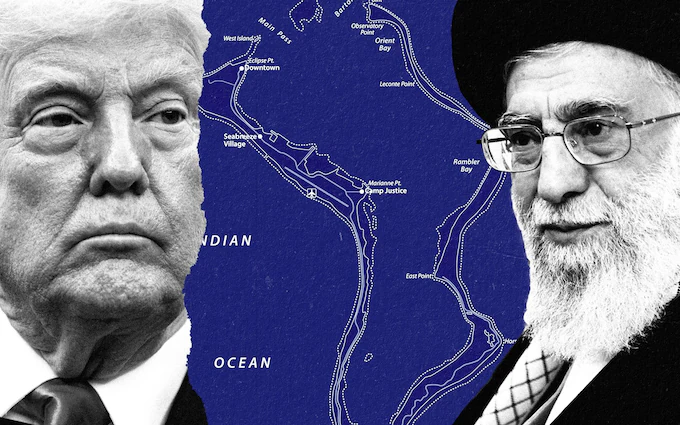Iran has warned that it will retaliate against a British military base housing US forces if the United States launches an attack. This warning has further increased tensions following renewed threats from former US President Donald Trump.
Iranian general’s warning on British base
In an interview published by The Telegraph on Saturday, an unnamed Iranian general stated that Tehran would not differentiate between British and American targets in a conflict. “There will be no distinction in targeting British or American forces if Iran is attacked from any base in the region or within the range of Iranian missiles,” he said. He added, “When the time comes, it will not matter whether you are an American, British or Turkish soldier—you will be targeted if your base is used by Americans.”
The general specifically warned about Diego Garcia, a British-controlled island in the Indian Ocean. The US military has recently stationed at least five B-2 stealth bombers there, according to reports. Iranian state-affiliated media have also suggested potential missile and drone attacks on the base.
Strait of Hormuz and regional tensions
Rear Admiral Alireza Tangsiri, head of Iran’s Revolutionary Guard Corps navy, suggested that Tehran could blockade the Strait of Hormuz, a crucial route for global oil shipments. “The decision is not mine to make, but its implementation is,” Tangsiri said. He accused Israel of seeking regional dominance and claimed that Saudi Arabia and Iraq were aligning with this strategy. He also acknowledged Trump’s warnings and stated that Iran was preparing for any potential conflict.
US and Israeli response
Speaking at the White House on Friday, Trump confirmed he had sent a letter to Iran’s leadership. “If we don’t work it out, bad things are going to happen to Iran,” he said. “You have to make a decision—we either have to engage in discussions or very bad things will happen. I don’t want that to be the case. My strong preference is to reach an agreement with Iran.”
Israeli officials, closely monitoring the situation, believe indirect negotiations between the US and Iran could take place in the coming months. These talks may determine whether a new nuclear agreement is possible. However, Israel is also preparing for a scenario where negotiations fail.
Strategic Affairs Minister Ron Dermer recently met with US officials in Washington to discuss potential developments. Israeli sources note that the current US administration prefers a diplomatic resolution but is keeping military options on the table. The recent deployment of US military assets in the Indian Ocean is part of this broader strategy.
Following the loss of key regional allies, Washington and Jerusalem are concerned that Iran may accelerate its nuclear ambitions. Recent US intelligence assessments suggest that Iran could produce enough weapons-grade uranium for a nuclear device in less than a week.
